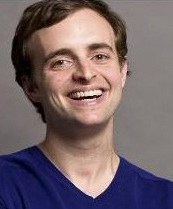Fall 2015 PPSM Seminar Series
PPSM sponsors a series of seminars covering a broad range of topics of general interest to the polymer community, featuring speakers from both on and off campus. [LIST OF PPSM SEMINARS 1986 to PRESENT] We invite the polymer community at MIT and elsewhere to participate. For further information, contact Professor Jeremiah Johnson at jaj2109@mit.edu. All talks take place on Wednesdays.
If you would like to receive Tuesday and Wednesday email announcements of the next upcoming PPSM seminar, please email your request including your email address to:
ppst-www@mit.edu
FALL 2015 SEMINAR LOCATION: 56-114
Seminar 3:30 PM / Refreshments 3:00 PM


|
|
NEXT POLYMER SEMINAR:
CANCELLED – WE HOPE TO RESCHEDULE FOR SPRING OR FALL 2016
“Polymeric Tools to Manipulate Innate Immunity: Probing a Code Without a Key”
Dept. of Chemistry
University of California/Irvine
Wednesday, December 9th, 2015
CANCELLED – WE HOPE TO RESCHEDULE FOR SPRING OR FALL 2016
ABSTRACT: Recent research into the immune system has revealed that foreign pathogens are detected through a series of receptors on antigen presenting cells. These receptors are synergistically activated by multiple pathogen associated molecular patterns. Polymer chemists have a large role to play in the coordinated design of vaccines and synthetic activators of the immune system. We report on our development of chemical and polymeric tools for interacting with the immune system. Our methods involve the bioconjugation of multiple PAMPs to polymeric scaffolds. These synergistic PAMP scaffolds have been tested against dendritic cells and we will report on the results. Additionally, we will report on our work coupling these synergistic combinations to cell-surface and other antigen rich environments. We also report on our attempts to control the innate immune system using light to guide responses.
Aaron Esser-Kahn grew up in Bloomfield Hills, MI. As a high-school student, he began his interest in research at Wayne State University. He then traveled west to study chemistry at the California Institute of Technology where he worked in the Tirrell lab. After completing his degree, he traveled north to Berkeley for a PhD in chemistry as part of the Francis lab and the Chemical-Biology Program. Inspired by the work going on at Autonomous Materials Systems group at UIUC, Aaron traveled back to the Midwest to work on new materials. Aaron began his independent career at the University of California, Irvine in 2011 and has been working in two areas – biomimetic approaches to carbon capture and chemical biology approaches to vaccine adjuvants. |
Accessibility
 Massachusetts Institute of Technology Cambridge, MA 02139-4307
Massachusetts Institute of Technology Cambridge, MA 02139-4307
![]()
![]() Massachusetts Institute of Technology Cambridge, MA 02139-4307
Massachusetts Institute of Technology Cambridge, MA 02139-4307
